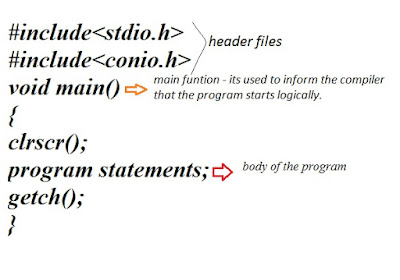Introduction to C language
 C Language is general purpose programming language. It has many desirable qualities of modern programming languages such as Portability, Fle
C Language is general purpose programming language. It has many desirable qualities of modern programming languages such as Portability, Flexibility and Efficiency
Portability means which is support all operating system and Compilers. Without any modification you can run all type of compiler.
Primary strength of C Language is More efficient. This is due to the fact that it has many low level fractions. It also has a ability to build complex program out of simple elements.
Development of C Language :-
(1) 1960 AL Gol to international committee
(2) 1967 BCPL - Martin Richard. (BCPL - Basic Combined Programming Language)
(3) 1970 B - Ken Thompson.
(4) 1972 C - Dennis Ritchie
(5) 1978 K & NC - Kenning ham & Dennis Ritchie.
(6) 1989 ANSI C - ANSI Committee
(7) 1990 ANSI/ISO C - ISO Committee
Features Of C Language :-
* C combines the capabilities of an assembly language as well of feature of high level language.
* Highly portability
* System software development
* More built in functions
* Case sensitive
* Powerful & flexible language.
* Highly portability
* System software development
* More built in functions
* Case sensitive
* Powerful & flexible language.
C Language:-
C Language can be collection of decentralized com-putative structures called functions. It these functions are logically group and put together then it is referred as library. Thus c program can be defined as a collection of function supported by standard 'C' library.
C Language Structure:-
- -> stdio.h = Standard input / output
- -> conio.h = Console input / output
- -> { }= starting loop and ending loop
- -> main() = main() is a special funtion used to inform the compiler that the program starts logically. Every program must have exactly one main function in C language.
Still you have any doubt then leave command or see our YOUTUBE videos. If you like then share this post


Post a Comment
Blogger Facebook